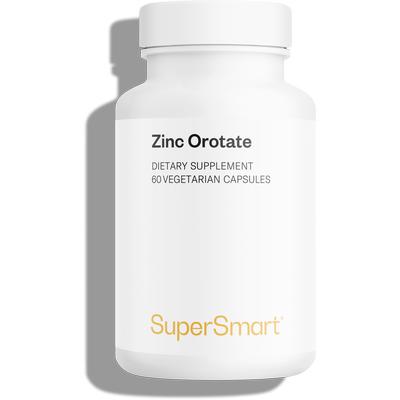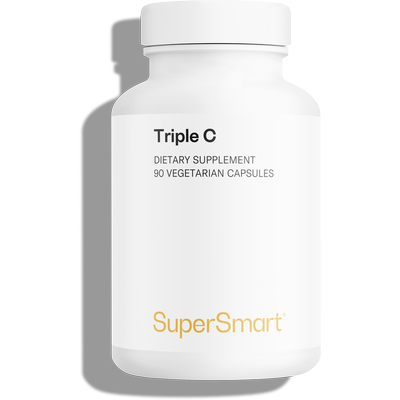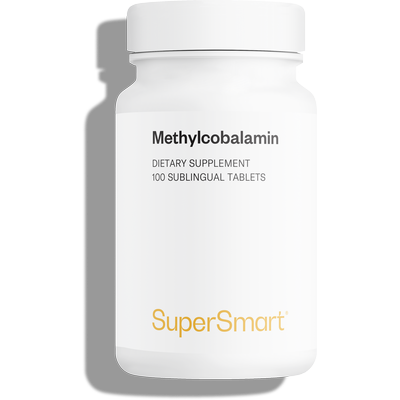Holistic eating: definition, principles, benefits
What should you eat to meet the criteria of a holistic diet? Discover the key principles and benefits of this trend … one that’s made to last.

What constitutes a holistic diet?
Holistic eating is an overall approach to nutrition, in which both the person as well as the food itself are considered in the round:
- person-wise, it’s about considering a range of aspects (physical and energy needs, emotional and spiritual state …);
- food-wise, it’s about replacing the classic approach (reductionist or analytical) that focuses on the effects of nutrients, either singly or collectively, by one that looks at food as a whole, identified as the whole food matrix. Through this prism, foods are also considered in terms of their origin, quality, potential combinations, etc.
Let’s not forget that the word holistic contains the Greek root ‘holos‘, meaning ‘whole, complete’.
The aim of holistic eating is thus to bring health and happiness, as Hippocrates said in the 5th century BC: “Let food be thy medicine”. But this approach is also part of a spiritual and ‘long-termist’ vision of eating, which is especially good for the environment.
So in practical terms, how do you eat holistically on a day-to-day basis?
How do you make holistic eating part of daily life?
Foods closer to their natural state
Holistic eating means choosing foods as close to their natural state as possible. The nutritionist Andrea Szabo recommends that we nourish ourselves with whole natural foods that grow in Mother Earth and drink pure water (with minimal processed ingredients )… »
Eating varied and raw foods will also take you closer to achieving a good intake of the macronutrients (fats, carbohydrates and protein) and micronutrients (vitamins and minerals) that your entire body needs in order to function properly (1-2).
Of course, it also means minimising your consumption of manufactured and processed foods, which may contain colouring agents, artificial flavourings or sweeteners harmful to health.
Eating mindfully
But holistic eating also means asking yourself: where does my food come from?Have these foods been well-grown or -treated? Why am I eating these foods? How do I eat them? With which other foods? These questions will help you make the best food choices, from both an ethical and functional point of view.
Take the time to eat slowly, to pay attention to the different textures in your mouth. Concentrate on appreciating your food. It all affects the way in which food is digested and absorbed.
Adopt a Mediterranean diet
This way of eating will naturally encourage you to choose the healthiest foods possible. The Mediterranean diet, for example, is known for being good for our health and even extending life expectancy (3).
It prioritises the consumption of plant-source foods, good quality fats and whole grains. Virgin olive oil, fresh fruit and vegetables, fish, spices, nuts and seeds are all key ingredients of this diet which fits well with the holistic approach.
Respecting the seasonal cycle
If you decide to adopt a holistic approach to eating, there’s another important element to take into account: reengaging with the seasonal cycle. By eating fruits and vegetables in season, you’re more likely to obtain nature’s benefits.
Nowadays, we’re used to seeing the same fruits and vegetables on our supermarket shelves all year round, regardless of the season. But it’s been shown that taste and nutritional quality is impaired by repeated cultivation of the same crop. Over-deep ploughing also impoverishes the soil.
What if your body followed nature’s rhythm instead? Holistic nutrition encourages us to develop local production, to respect the need to allow fruits and vegetable to ripen and to cut transportation times, in order to reduce greenhouse gas emissions which benefits both humans and the planet as a whole.
What benefits are offered by holistic nutrition?
In all these respects, holistic nutrition helps you achieve better physical health: effective weight control, improvements in your digestive health and sleep, a stronger immune system, less pain …It can also have positive effects on brain function. By giving up an unhealthy diet, you’ll be reducing your consumption of pesticides, fertilizers and hormones, all of which can affect brain function and even the ability to make decisions (4).
In terms of emotions, too, certain foods produce in us feelings of joy and vitality (bananas, Brazil nuts, kiwi fruit, salmon, walnuts and hazelnuts …), while others make us feel exhausted and devitalized (sugary drinks, sandwiches, pasta, white bread, gluten ...) Eating well and consciously also helps you to see things more clearly and to feel happier.
Note: if, on your ‘holistic journey’, you’re driven by ecological concerns to follow a strict vegan diet, take particular care to ensure a good intake of crucial vitamin B12 (5). And be wary of vague holistic theories that may be put forward by some ‘alternative medicine’ specialists which could upset the balance of your food and nutritional intake (6).
The reduction in pollution and smaller carbon footprint associated with this way of eating are in all cases excellent for the planet. The basic precepts of holistic eating should ideally be taken on board on a large scale to help support people’s general health and preserve an abundant supply of food in the future.
SUPERSMART ADVICE
References
- Cena H, Calder PC. Defining a Healthy Diet: Evidence for The Role of Contemporary Dietary Patterns in Health and Disease. 2020 Jan 27;12(2):334. doi: 10.3390/nu12020334. PMID: 32012681; PMCID: PMC7071223.
- Shenkin A. Micronutrients in health and disease. Postgrad Med J. 2006 Sep;82(971):559-67. doi: 10.1136/pgmj.2006.047670. PMID: 16954450; PMCID: PMC2585731.
- Tosti V, Bertozzi B, Fontana L. Health Benefits of the Mediterranean Diet: Metabolic and Molecular Mechanisms. J Gerontol A Biol Sci Med Sci. 2018 Mar 2;73(3):318-326. doi: 10.1093/gerona/glx227. PMID: 29244059; PMCID: PMC7190876.
- Lane MM, Gamage E, Travica N, Dissanayaka T, Ashtree DN, Gauci S, Lotfaliany M, O'Neil A, Jacka FN, Marx W. Ultra-Processed Food Consumption and Mental Health: A Systematic Review and Meta-Analysis of Observational Studies. Nutrients. 2022 Jun 21;14(13):2568. doi: 10.3390/nu14132568. PMID: 35807749; PMCID: PMC9268228.
- Ankar A, Kumar A. Vitamin B12 Deficiency. [Updated 2022 Aug 12]. In: StatPearls [Internet]. Treasure Island (FL): StatPearls Publishing; 2022 Jan-. Available from: https://www.ncbi.nlm.nih.gov/books/NBK441923/
- Dave LA, Hodgkinson SM, Roy NC, Smith NW, McNabb WC. The role of holistic nutritional properties of diets in the assessment of food system and dietary sustainability. Crit Rev Food Sci Nutr. 2021 Dec 21:1-21. doi: 10.1080/10408398.2021.2012753. Epub ahead of print. PMID: 34933622.
Keywords
1 Days
Simple and quick :-)
My order was delivered quickly, and I'm satisfied with the product! It was lot less fuss compared with some things I've ordered.
DEL Jacqueline
1 Days
Excellent quality products & customer…
Excellent quality products & customer service & care …thank you!
Giovanna Escalera
3 Days
great experience
Easy ordering, fast deliver, very professionally.
Natasa
6 Days
this company and its products are…
this company and its products are perfect: I have been their customer for three years , prices are reasonable for the high quality they offer , the products are of very good quality not just plainly "normal" , delivery is quite fast. we are very satisfied with them.
Gabriel Diacakis
6 Days
TOP service TOP products will buy again…
TOP service TOP products will buy again and again
PINOTTI Giorgio
9 Days
Trustworthy company with tested products
Trustworthy company with tested products
Trusted
13 Days
Efficiency and speed
Efficiency and speed
Cuccie
15 Days
GOOD BRAND IN FOOD COMPLEMENTS
GOOD BRAND IN FOOD COMPLEMENTS - SERIOUS WITH GOOD DOCUMENTS AND DETAILS SCIENTIST. AND SERIOUS HONNEST COMMERZIALISATION. I HAVE TRUST IN THEIR PRODUCTS.
FENOGLIO Guy
16 Days
Very good experience
Very good experience, the products arrived in time, in perfect condition and are good quality. Thank you.
GABI TIRCOCI
22 Days
very good expereince
very good expereince
Jelena Đaković
22 Days
Very good products.
Very good products.
Agnes BENDSAK
24 Days
Just OK
Just OK, ordering from company for many years and being safisfied
Lynn Mae
24 Days
Recomendo
Produtos encomendados são recebidos atempadamente e de acordo com o anunciado! Muito satisfeita!
Carla Sofia
25 Days
Everything is great!
Everything is great!
Jonas
30 Days
The delivery was fast and the product…
The delivery was fast and the product is great
SOMMARIVA Gianni
of experience
your money back
##montant## purchase







